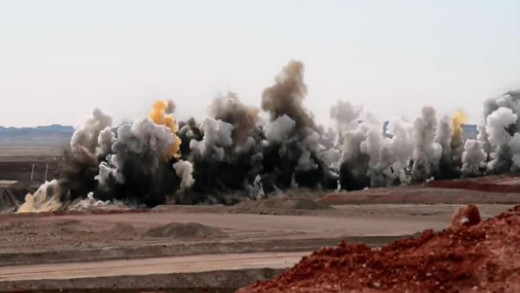China's factories provide low cost products such as computers and cars to the rest of the world, but the real cost is high with heavy air pollution, contaminated waterways, decimated land, terrible working conditions, widespread cancer and incidences of deaths. China's Dirty Secrets travels across the country to follow workers at factories that assemble computers, then to e-waste dumps, and finally an industrial incinerator burning medical waste, all showing first-hand the extensive environmental impacts of so-called "economic growth."
Mongolia is the next target for the world's biggest mining corporations for copper. The Oyu Tolgoi mine currently under construction in the South Gobi Desert is a combined open-pit and underground mine due to start extraction in the next few months of 2012. But the problems don't end there. The Oyu Tolgoi deal between the Mongolian government and the massive Australian mining company Rio Tinto is truly indicative—Mongolia gets just 34 percent, while Rio Tinto is exempt from a profits tax and receives open access to scarce desert aquifers and the provisioning of water to people living close to land that the mining company now claims to own. The Big Dig documents how this avaricious mining-driven culture comes at the expense of the natural world and the way of life of local communities.
Globesity exposes the explosion of global obesity by following how fast food corporations have infiltrated countries where just a few decades ago hunger was a headline health concern. The film travels to China where the consumption of sugar has skyrocketed, to Brazil where corporations such as Nestlé have fundamentally altered traditional diets, to India where it’s predicted that 100 million people will be suffering diabetes in the not-too-distant future, and on to Mexico--the biggest consumer of soft drink in the world--where diabetes is already the number one killer. The film is one illustration of many of how vast corporate operations further destroy traditional communities and usurp basic needs like food...


